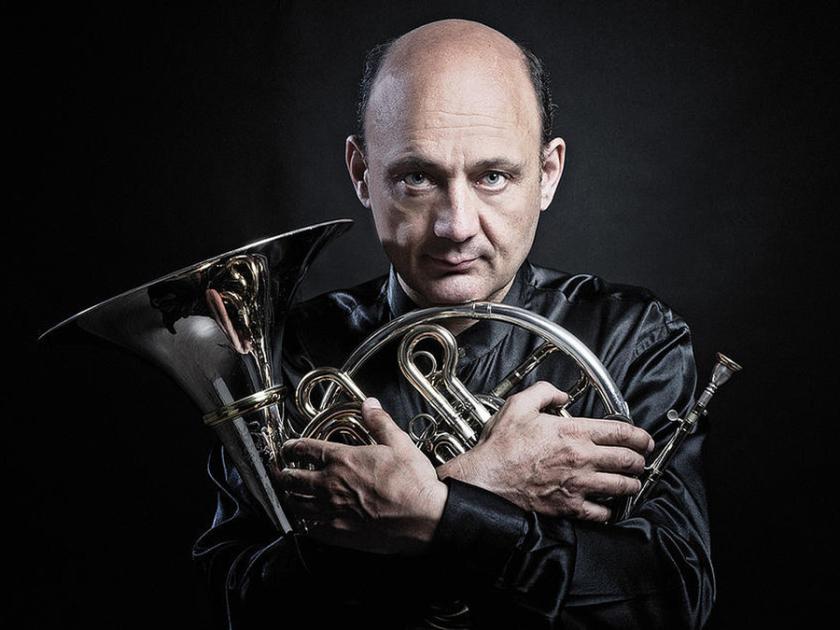 Francis Chagrin: Symphonies 1 and 2 BBC Symphony Orchestra/Martyn Brabbins (Naxos)
Francis Chagrin: Symphonies 1 and 2 BBC Symphony Orchestra/Martyn Brabbins (Naxos)
Born Alexander Pauker in Bucharest in 1906, Francis Chagrin's name change occurred after pitching up in Paris in the early 1930s to pursue a musical career, his personal chagrin a result of disinheritance and an unhappy divorce. His teachers included Dukas (see below) and Nadia Boulanger, Chagrin supporting his studies by playing the piano in nightclubs. He moved to London in 1936, later describing himself as “Romanian by birth, British by nationality and cosmopolitan by inclination.” A busy career took in a wartime musical post for the BBC's French Service and setting up the Society for the Promotion of New Music. Along with churning out 200 film scores, plus many hours of music for television and commercials. You've probably heard some of Chagrin's music without knowing it, and readers of a certain age will rejoice in the knowledge that his actor son Julian played the pyjama-clad tippler in an iconic 1970s lemonade advert.
All fascinating, but are Chagrin's two symphonies any good? To which the answer would be yes, but. Both are substantial four-movement pieces, well-orchestrated and neatly structured. Symphony No 1 was started in 1946 and finally finished in 1959. The seriousness of purpose is pretty intimidating; this piece growls, snarls and broods. There's a haunting Largo, and a motoric finale. All a bit grim though, the unrelieved darkness leaving one desperate for a bit of Eric Coates or Percy Grainger. Chagrin's follow-up was completed in 1971, and isn't significantly brighter. Again, it's the elegiac slow movement which resonates, featuring some superb percussion writing. The symphony's final minutes are magnificent, though, fiercely dissonant yet powerfully affirmative. Both works are confidently played by Martyn Brabbins's BBC Symphony Orchestra, and we should salute the fact that such quirky, offbeat repertoire is accessible for less than the price of a few beers. Well worth investigating.
 Dukas: Cantatas, choruses and orchestral music Flemish Radio Choir, Brussels Philharmonic/Hervé Niquet (Ediciones Singulares)
Dukas: Cantatas, choruses and orchestral music Flemish Radio Choir, Brussels Philharmonic/Hervé Niquet (Ediciones Singulares)
French composers winning the annual Prix de Rome for Music were entitled to state support for a period of study in Italy. Held from 1803 to 1968, this release's sleeve notes describe the contest's history as "the history of French music". Though a glance at the chronological list of winners will probably leave most music-lovers scratching their heads; Debussy and Ravel famously never won, and most of the actual prize winners are long forgotten. Candidates were required to compose a chorus with orchestral accompaniment to a set text and an operatic scene or cantata based on a historical, mythological or Biblical subject. Instrumental or abstract music was frowned upon. The fastidious, self-critical Paul Dukas entered three times in the 1880s. He didn't win either. This two-disc set collects his entries, and the surprise is how vibrant and entertaining they are. Three brief choruses work miracles with their stodgy libretti, Dukas's bright, clean textures in La Fête des myrtes a particular joy.
More ambitious are the cantatas composed for the competition's second round. Sémélé and Velléda are fabulous: 30 minute mini-operas, with no boring bits. Catherine Hunold and Kate Aldrich are superb in the former as Sémélé and Junon, and it's a surprise to learn that this recording is the work's first performance, the score having languished in the Paris Conservatoire since 1889 – presumably Dukas would have destroyed the manuscript had it been in his possession. There's also the very Wagnerian-sounding Polyeucte overture from 1892, and Odette Metzneger's sympathetic orchestration of Dukas's horn piece Villanelle, nicely played by Hans van der Zanden. Hervé Niquet's Brussels Philharmonic forces are on fine form, and the two discs come in a handy hardback book which is a pleasure to hold and read.
 Mozart: Horn Concertos, Horn Quintet Javier Bonet (horn), Münchner Rudfunkorchester/Hermann/Baumann (Javier Bonet)
Mozart: Horn Concertos, Horn Quintet Javier Bonet (horn), Münchner Rudfunkorchester/Hermann/Baumann (Javier Bonet)
New releases of Mozart's horn concertos tend to go down the period instrument, unvalved route, with outstanding recent versions from Roger Montgomery and Pip Eastop. This crowd-funded disc has Javier Bonet playing a modern horn, backed by an orchestra conducted by veteran hornist Hermann Baumann. Baumann himself recorded these concertos on both natural and valved horns, and here he proves to be sublimely affable accompanist. Bonet's bright, clear sound won't be to all tastes, but it serves his performance style beautifully; these are deliciously vocal performances. And scrupulously prepared, too. K417's first movement includes John Humphries' idiomatic reconstruction of the movement's close: what follows after the cadenza sounds noticeably more Mozartian than what we're used to. Bonet's account of the enigmatic D major concerto K412 features a more authentic version of the Rondo, almost derailed by a cheekily inauthentic cadenza.
This is a comprehensive set, the bonus features including Humphries' edition of the Eb Concert Rondo, a dazzling performance of the sublime Horn Quintet and a snatch of Bonet playing the natural horn. Especially poignant is the E major concerto fragment, stopping abruptly after a tutti flourish as promising as that which opens Mozart's Clarinet Concerto. All good, and horn aficionados fans will lap up the edition which includes a bonus 'Making Of' DVD. Bonet's balletic playing is entertaining to watch; it's refreshing to see musicians having such fun.














Add comment